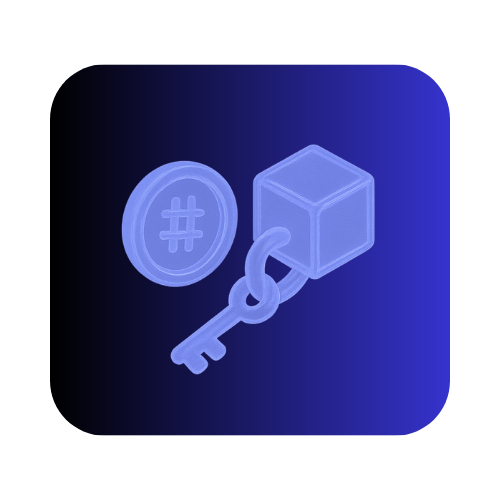 QED
QED
 English
English

 All Blogs
All Blogs

Transforming Customer Relationships with a Blockchain CRM Solution
In today’s hyper-connected world, where data is currency and trust is the cornerstone of customer relationships, traditional customer relationship management (CRM) systems are showing their limitations. Centralized databases, limited transparency, data breaches, and siloed communication are holding back businesses from truly connecting with their customers.
Enter the blockchain CRM solution — a revolutionary advancement that redefines how businesses manage, secure, and leverage customer data. Built on the trustless, decentralized, and transparent nature of blockchain technology, a blockchain CRM solution has the potential to reshape industries ranging from finance and retail to healthcare and manufacturing.
In this blog post, we'll delve deep into what makes blockchain CRM solution a game-changer, explore its real-world applications, cite relevant statistics, and highlight how innovative companies like Qedvault are paving the way for this transformation.
At its core, a blockchain CRM solution is a customer relationship management platform powered by blockchain technology. Unlike traditional CRM systems that store data in centralized servers, a blockchain CRM distributes data across a decentralized network. This makes customer records immutable, transparent, and secure—helping build trust between companies and consumers.
Key features of a blockchain CRM solution include:
This approach leads to more secure and transparent customer interactions while streamlining internal processes.
Before we understand the benefits of a blockchain CRM solution, it’s important to recognize the limitations of existing CRM platforms.
These pain points highlight the urgent need for a secure, transparent, and interoperable solution—exactly what blockchain brings to the table.
Let’s break down how blockchain technology addresses CRM limitations and offers a next-gen solution for customer management.
Imagine a retail brand that uses a blockchain CRM solution to track a customer’s purchase history, feedback, preferences, and loyalty rewards.
A customer named Sarah buys skincare products regularly. With blockchain-enabled CRM:
This creates a hyper-personalized and trust-based customer experience—something traditional CRMs struggle to deliver.
Among the trailblazers developing and deploying blockchain-powered enterprise solutions is Qedvault. With a deep focus on security, scalability, and innovation, Qedvault has built a modular blockchain CRM solution tailored for today’s customer-centric businesses.
Qedvault’s Blockchain CRM Features:
Through its comprehensive offering, Qedvault enables businesses to foster long-term relationships, boost retention, and comply with global privacy regulations—all through the power of blockchain.
The numbers speak for themselves. Blockchain is quickly moving beyond cryptocurrency to power enterprise applications like CRM.
These trends underscore the urgency for enterprises to evolve and adopt modern CRM tools rooted in blockchain principles.
The use of a blockchain CRM solution isn’t limited to retail or e-commerce. Let’s explore how different industries can benefit:
While the benefits are substantial, businesses often raise concerns about adopting a blockchain CRM solution:
Concern 1: “Is
it too complex to implement?”
Qedvault tackles this by offering plug-and-play modules that integrate with existing CRM and ERP
platforms. Businesses don’t need to start from scratch.
Concern 2: “Is
blockchain scalable for CRM?”
Modern blockchain architectures, especially Layer-2 solutions and private blockchains, offer scalability
without compromising security.
Concern 3:
“What about regulatory risks?”
A robust blockchain CRM solution ensures compliance with GDPR, HIPAA, and other frameworks by giving
users control over their data and ensuring full traceability.
The shift toward decentralized customer management is inevitable. As customers become more aware of their digital rights and demand more personalized experiences, businesses must evolve or risk being left behind.
In the next 5–10 years, we expect:
These innovations will fundamentally reshape how companies understand, engage, and retain their customers.
The days of siloed, insecure, and opaque customer management systems are numbered. A blockchain CRM solution offers the tools to build a transparent, secure, and customer-first organization.
Through decentralized data handling, automated workflows, and real-time transparency, blockchain is reinventing CRM in a way that restores trust and creates meaningful connections. And with cutting-edge platforms like Qedvault, businesses don’t have to choose between innovation and compliance—they can have both.
If your organization is looking to:
✅ Build customer trust
✅ Improve data security
✅ Ensure privacy compliance
✅ Automate workflows
✅ Offer personalized experiences at scale
Start with a free trial and redefine trust with the digital product passport